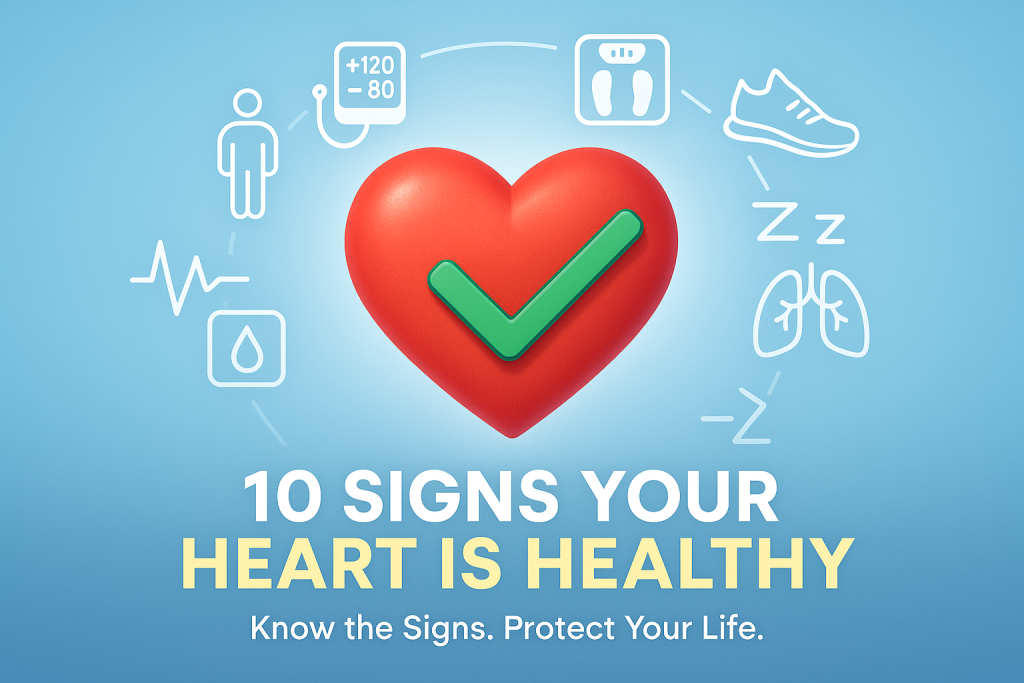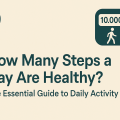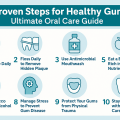Why Heart Health Matters for a Longer, Happier Life
Your heart is the engine that keeps your body running smoothly. Maintaining heart health is essential not just for living longer, but also for enjoying a higher quality of life. Heart disease remains the leading cause of death globally, according to the World Health Organization, yet most people aren’t sure how to tell if their heart is truly healthy. Understanding the signs of a strong heart and knowing when to act can make all the difference.
In this comprehensive guide, you’ll discover 10 proven signs your heart is healthy, find out which habits help protect your cardiovascular system, and learn when to consult a healthcare professional. Stay informed and empowered to take proactive steps towards lasting wellness.
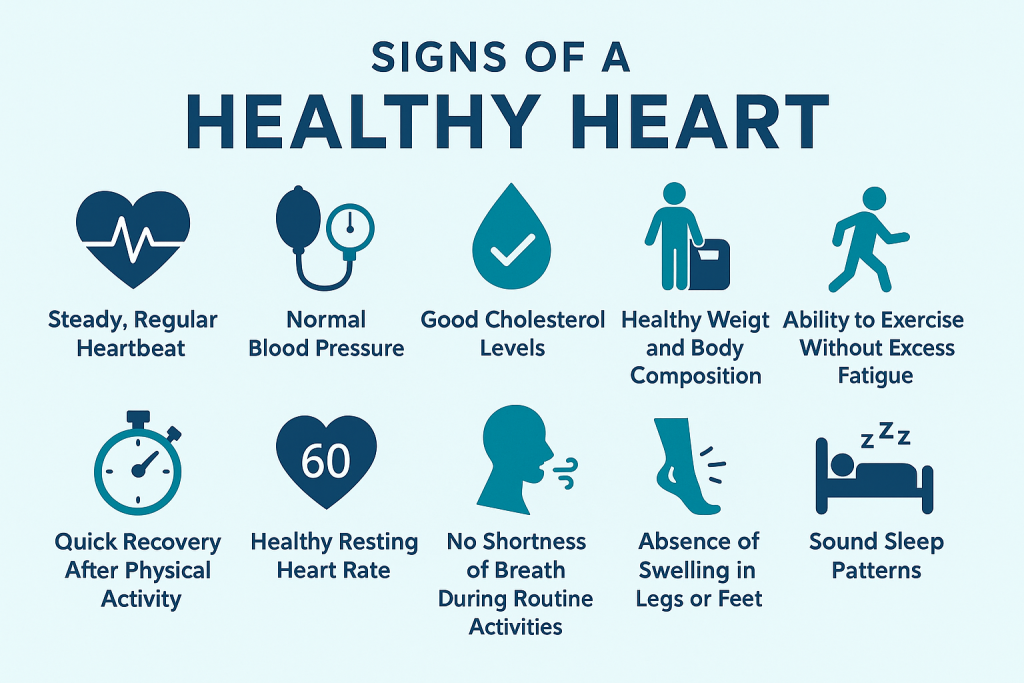
Top 10 Signs of a Healthy Heart
Monitoring your heart’s health doesn’t always require expensive tests. There are several clear indicators of good cardiovascular function that you can observe in your daily life. Here are the top 10 signs that suggest your heart is in great shape:
- Steady, Regular Heartbeat
- Normal Blood Pressure
- Good Cholesterol Levels
- Healthy Weight and Body Composition
- Ability to Exercise Without Excess Fatigue
- Quick Recovery After Physical Activity
- Healthy Resting Heart Rate
- No Shortness of Breath During Routine Activities
- Absence of Swelling in Legs or Feet
- Sound Sleep Patterns
Understanding Key Heart Health Indicators
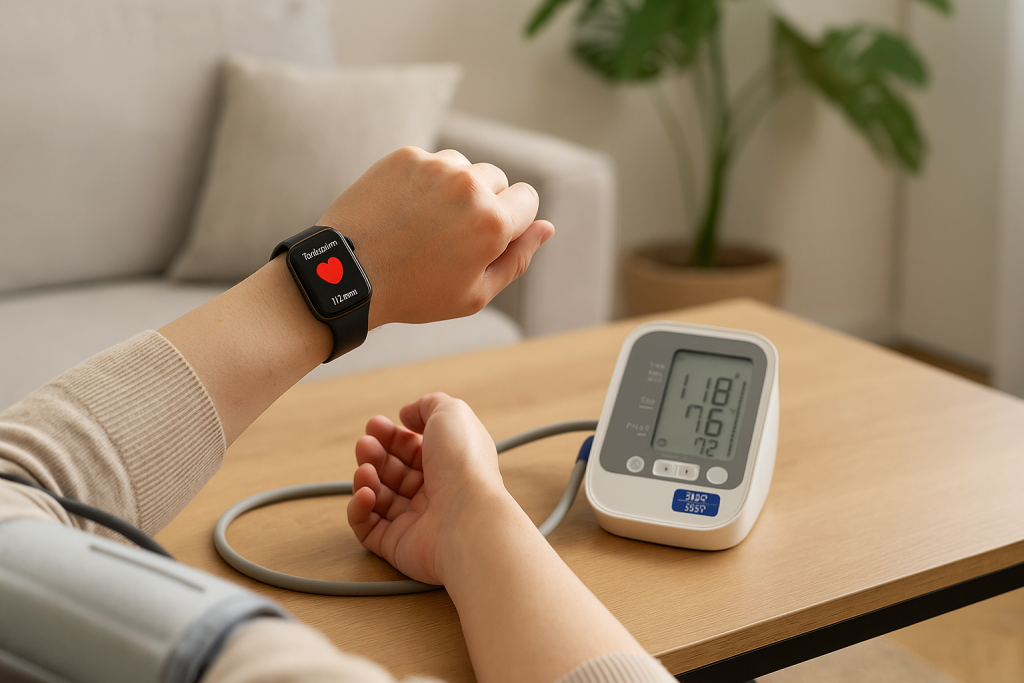
Resting Heart Rate
A healthy adult resting heart rate ranges from 60 to 100 beats per minute. Athletes or those who are very fit may have even lower rates, indicating a more efficient heart. If your resting heart rate falls outside this range consistently, or if you notice sudden changes, it may be a sign to talk to your doctor.
Blood Pressure
Normal blood pressure for most adults is around 120/80 mmHg. Consistently elevated readings can put strain on your heart and vessels, increasing the risk of heart attack and stroke. Regularly monitoring your blood pressure at home or during checkups is a proactive way to catch issues early.
Cholesterol Levels
Optimal cholesterol levels are crucial for heart health. Ideally, total cholesterol should be under 200 mg/dL, with LDL (bad) cholesterol below 100 mg/dL and HDL (good) cholesterol above 60 mg/dL. Regular blood tests can help you track your numbers and make necessary lifestyle adjustments.
Physical Fitness and Heart Health
Ability to Exercise Efficiently

One of the best indicators of cardiovascular health is your body’s response to exercise. If you can engage in moderate physical activity—such as brisk walking, cycling, or swimming—without excessive shortness of breath or fatigue, your heart is likely functioning well.
Quick recovery after exercise is also a positive sign. Your heart rate should return to its resting value within a few minutes after stopping activity. This quick recovery points to a strong and adaptable cardiovascular system.
Healthy Weight and Body Composition
Maintaining a healthy weight reduces the strain on your heart and lowers your risk of heart disease, diabetes, and other chronic conditions. Body Mass Index (BMI) is a common measure, but waist circumference and overall body fat percentage are also important. Consult with your doctor to determine your optimal range.
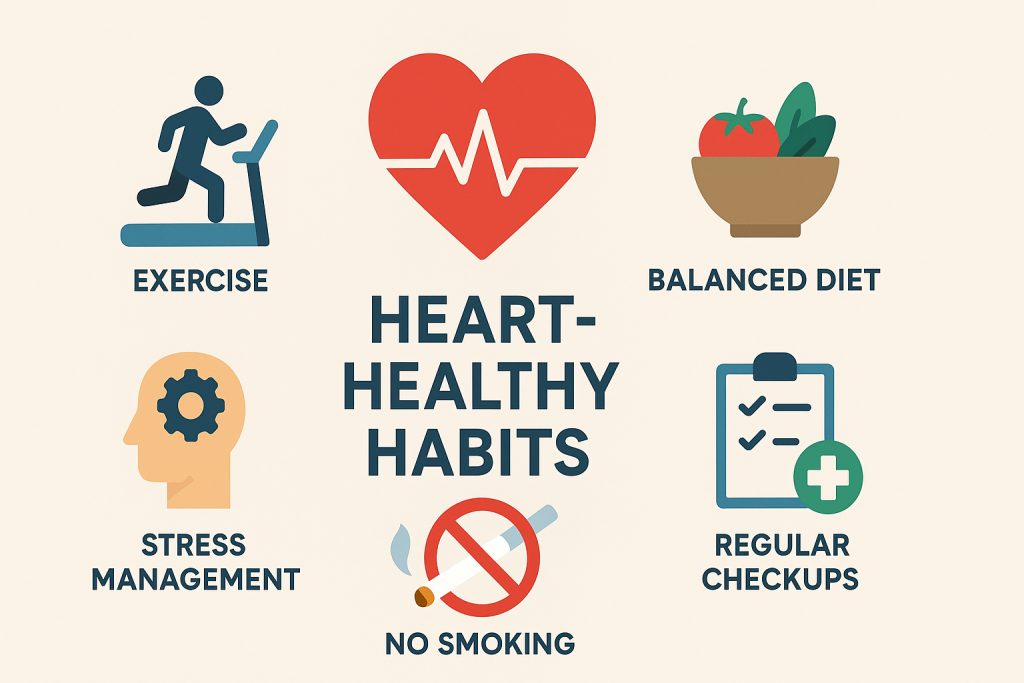
Everyday Signs Your Heart Is Thriving
No Excessive Fatigue or Shortness of Breath
If you can go about daily tasks—climbing stairs, carrying groceries, playing with your kids—without feeling exhausted or short of breath, it’s a strong sign your heart is efficiently delivering oxygen throughout your body. Persistent fatigue or unexplained breathlessness may be early warning signs of heart trouble.
No Swelling in Your Legs, Ankles, or Feet
Healthy hearts effectively pump blood, preventing fluid buildup in your lower limbs. Swelling—known as edema—can indicate heart failure or circulation problems. If you notice persistent swelling, consult a healthcare professional promptly.
Quality Sleep Patterns
Sound, uninterrupted sleep is another indicator of a healthy heart. Sleep apnea, insomnia, or frequent nighttime awakenings can strain your cardiovascular system over time. Prioritizing sleep hygiene and addressing sleep issues can improve both heart health and overall wellbeing.
Warning Signs You Shouldn’t Ignore
While the above are positive indicators, it’s important to recognize symptoms that might suggest a heart problem. Seek medical attention if you experience:
- Chest pain or discomfort
- Irregular or very rapid heartbeat
- Severe shortness of breath
- Sudden dizziness or fainting
- Pain radiating to your jaw, neck, or arm
These could signal a heart attack or another serious condition. Early intervention saves lives.
How to Assess Your Heart Health at Home
Track Your Heart Rate and Rhythm
Use a fitness tracker, smartwatch, or the traditional method of checking your pulse to monitor your resting heart rate. Note any irregularities or consistent changes over time. Apps and smart devices can even track your heart’s rhythm and provide alerts for abnormalities, but always confirm findings with a healthcare provider.
Monitor Blood Pressure Regularly
Home blood pressure monitors are widely available and easy to use. Keep a log of your readings and share them with your doctor during checkups. Consistency is key—take your measurements at the same time each day, preferably while seated and relaxed.
Pay Attention to Your Body’s Signals
Your body often provides early warning signs when something is wrong. Notice how you feel during and after exercise, your stamina during daily activities, and any new or persistent symptoms. Don’t ignore unexplained fatigue, swelling, or changes in your exercise tolerance.
Tips for Keeping Your Heart Strong
- Exercise Regularly: Aim for at least 150 minutes of moderate-intensity aerobic exercise per week.
- Eat a Heart-Healthy Diet: Focus on fruits, vegetables, whole grains, lean proteins, and healthy fats.
- Manage Stress: Practice relaxation techniques like meditation, deep breathing, or yoga.
- Avoid Smoking and Limit Alcohol: Both can have serious negative effects on your cardiovascular system.
- Get Regular Checkups: Visit your healthcare provider for annual heart health assessments and blood tests.
When to See a Doctor for a Heart Checkup
Even if you feel healthy, regular medical checkups are vital. Some heart conditions develop silently and only show symptoms in advanced stages. If you have risk factors like a family history of heart disease, high blood pressure, diabetes, or are over the age of 40, discuss a proactive screening schedule with your doctor.
Tests such as electrocardiograms (ECG), echocardiograms, and stress tests can provide additional insights into your heart’s health. Early detection and management are key to preventing serious complications down the line.
Conclusion: Take Charge of Your Heart Health Today
Understanding and monitoring the proven signs of a healthy heart empowers you to make smarter choices every day. By paying attention to your body’s signals, embracing heart-healthy habits, and seeking professional advice when necessary, you can protect your most vital organ and enjoy a vibrant, active life for years to come. Start making these positive changes today—your heart will thank you!
